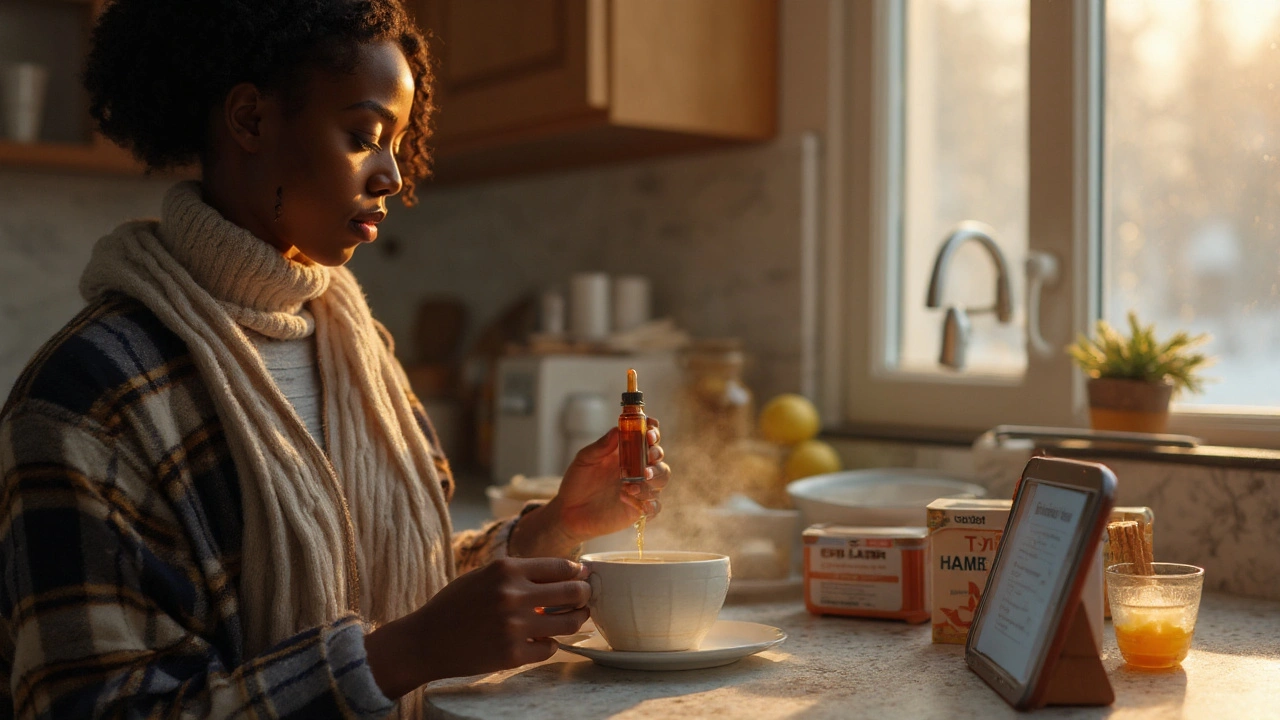What Umckaloabo is, what the research says, who should avoid it, dosing, safety, and how it compares to zinc, echinacea, and cold meds in 2025.
Umckaloabo – A Simple Guide for Parents
If you’ve seen umckaloabo on a label or heard a friend mention it, you might wonder what it actually does. In plain terms, umckaloabo is a plant extract from Pelargonium sidoides, a herb that grows in South Africa. It’s sold as a syrup or lozenge and is often marketed for coughs, colds, and other upper‑respiratory symptoms.
Unlike prescription medicines, umckaloabo is considered a dietary supplement in many countries. That means it’s not regulated as tightly, and the exact amount of active ingredients can vary between brands. For a parent, the biggest question is whether it’s safe for a child and how to use it correctly.
How Umckaloabo Is Thought to Work
Scientists think the plant contains compounds that may help the body fight germs and reduce inflammation in the throat. Some small studies in adults show a modest reduction in cough duration, but the evidence isn’t strong enough to replace a doctor‑prescribed medicine. Still, many families use it because it feels natural and has a pleasant taste.
Dosage and Safety Tips for Kids
Most manufacturers recommend a dose based on age, not weight. A typical schedule looks like this:
- Children 2‑5 years: 2.5 mL (about half a teaspoon) three times a day.
- Children 6‑12 years: 5 mL (one teaspoon) three times a day.
- Teens 13 years and older: 10 mL (two teaspoons) three times a day.
Always read the label on the bottle you bought, because concentrations can differ. If your child is under two years old, most experts advise against using umckaloabo unless a pediatrician says it’s okay.
Watch for side effects. Most kids tolerate the syrup well, but some may get an upset stomach, mild diarrhea, or a rash. If any of these symptoms get worse, stop the product and call your doctor.
Because umckaloabo can interact with certain medications—especially those that affect the liver—you should double‑check with your pharmacist if your child is already taking prescription drugs.
When to see a doctor? If your child’s cough lasts more than ten days, comes with fever over 101°F (38.5°C), or is accompanied by wheezing or trouble breathing, get professional help right away. Umckaloabo is not a cure for serious infections like pneumonia.
In short, umckaloabo can be a reasonable short‑term option for mild coughs in kids, as long as you stick to the recommended dose and keep an eye on any reactions. It’s not a substitute for medical advice, so when in doubt, ask your pediatrician.
